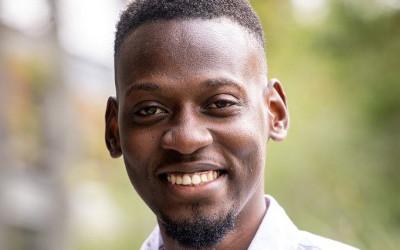£283,000 grant to project for fostering equitable partnerships in Africa

A new project at The Open University looking at fostering equitable partnerships in Africa has received a £283,000 grant from the Arts and Humanities Research Council (AHRC). The project, which is the latest in a series of efforts spearheaded by Professor Parvati Raghuram, is set to redefine collaborative research, focusing on gender, conflict, and creative economies in Kenya and South Africa. Professor Raghuram’s previous work includes a significant initiative on decolonizing education for peace in Africa.
The project's primary goal is to develop a comprehensive report for the AHRC, outlining best practices for equitable partnerships in future arts and humanities research. Similar initiatives are underway in Malaysia and Brazil, making this a global effort. The research will focus on three critical areas: creative economy, gender and violence, and peace and security. It aims to distinguish between rights holders (those who directly own cultural rights) and stakeholders (those who have a vested interest) ensuring that the voices of rights holders are prominently featured.
The project involves creating detailed reports for Kenya and South Africa. Initial meetings will be held with rights holders, followed by discussions with stakeholders. This methodology is designed to build a robust framework for equitable partnerships by incorporating diverse perspectives.
The AHRC, along with the British Academy, is closely involved in the project, providing guidance and participating in the stakeholder meetings. This collaboration ensures that the findings will be aligned with broader efforts to enhance equitable partnerships in arts and humanities research.
Key collaborators and long-term impact
The project boasts a strong network of collaborators, including Ashley Gunter from South Africa, Wycliffe Ong’eta in Kenya Melis Cin at Lancaster and Manu Lekunze at Aberdeen and will be supported by Craig Walker. This extensive network builds on previous grants related to the creative economy in South Africa and Zimbabwe, focusing on the creation of open education resources and teaching materials.
A significant aim of the project is to include historically disadvantaged universities in South Africa, such as Fort Hare, in the funding spectrum. This effort seeks to broaden the range of institutions that benefit from such grants, pushing the boundaries of who receives funding and ensuring a more inclusive approach to research partnerships.
Raghuram emphasizes the importance of addressing practical challenges beyond rhetorical commitments to decolonization, “The project will tackle issues like project management, ethics, data management, and eligibility for funding within the context of equitable partnerships. This practical approach is designed to make a tangible impact on how collaborative research is conducted.”
Vision for the future
Professor Raghuram envisions success in the longer-term with institutions like the AHRC rethinking their approach to equitable partnerships. By addressing practical aspects such as due diligence, ethics, and safeguarding, the project aims to create a more inclusive and effective research environment.
Professor Raghuram added, “The ultimate goal is to spark open conversations about the limits and possibilities of equitable work, providing a platform for these discussions. This initiative aims not only to influence arts and humanities research but also to lead to significant institutional changes. The £283,000 grant allows us to take another step towards achieving these ambitious goals. Through meticulous planning, stakeholder engagement, and collaboration with key institutions, the project is set to create a new standard for equitable research partnerships, ensuring that the voices of African communities are heard and respected in the global research landscape.”
Quarterly Review of Research
Read our Quarterly Review of Research to learn about our latest quality academic output.

Contact our news team
For all out of hours enquiries, please telephone +44 (0)7901 515891
Contact details